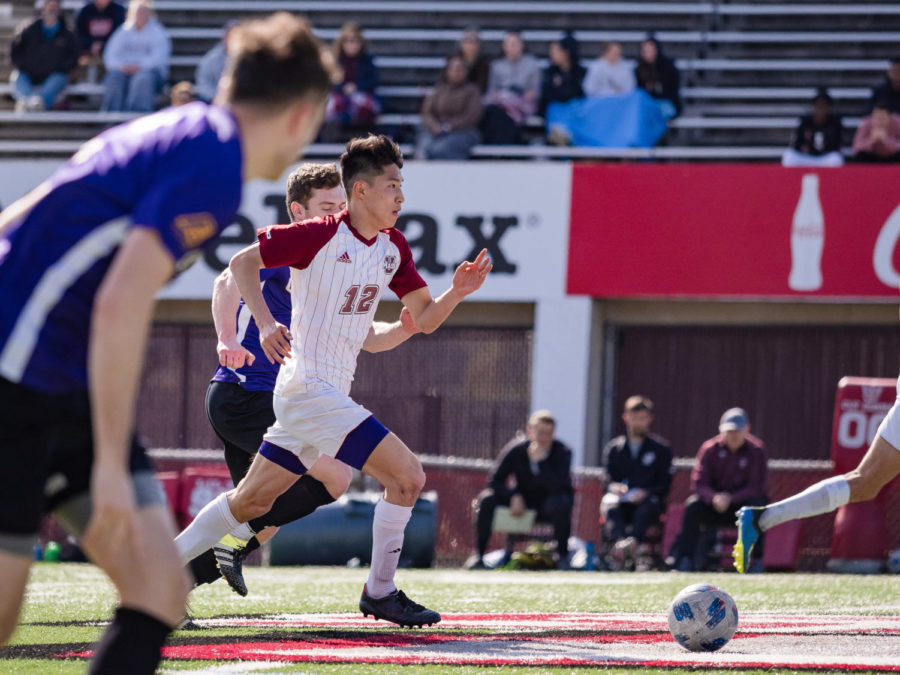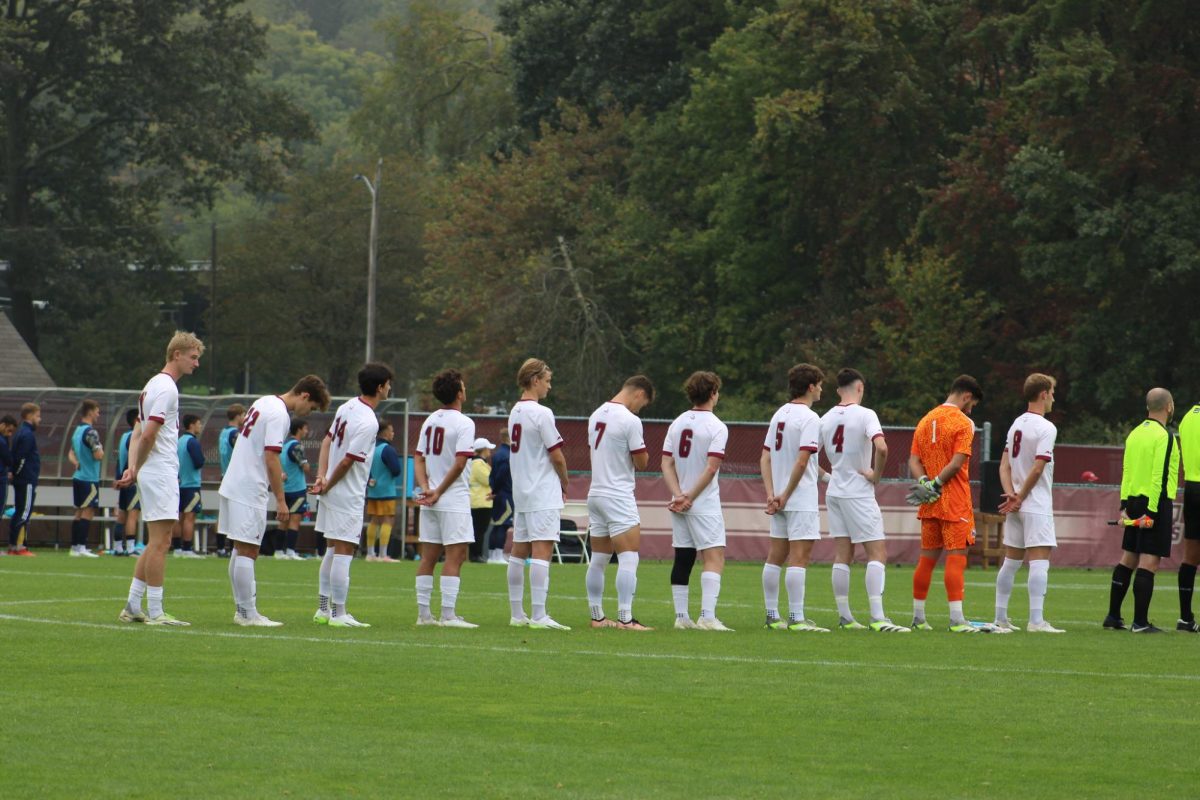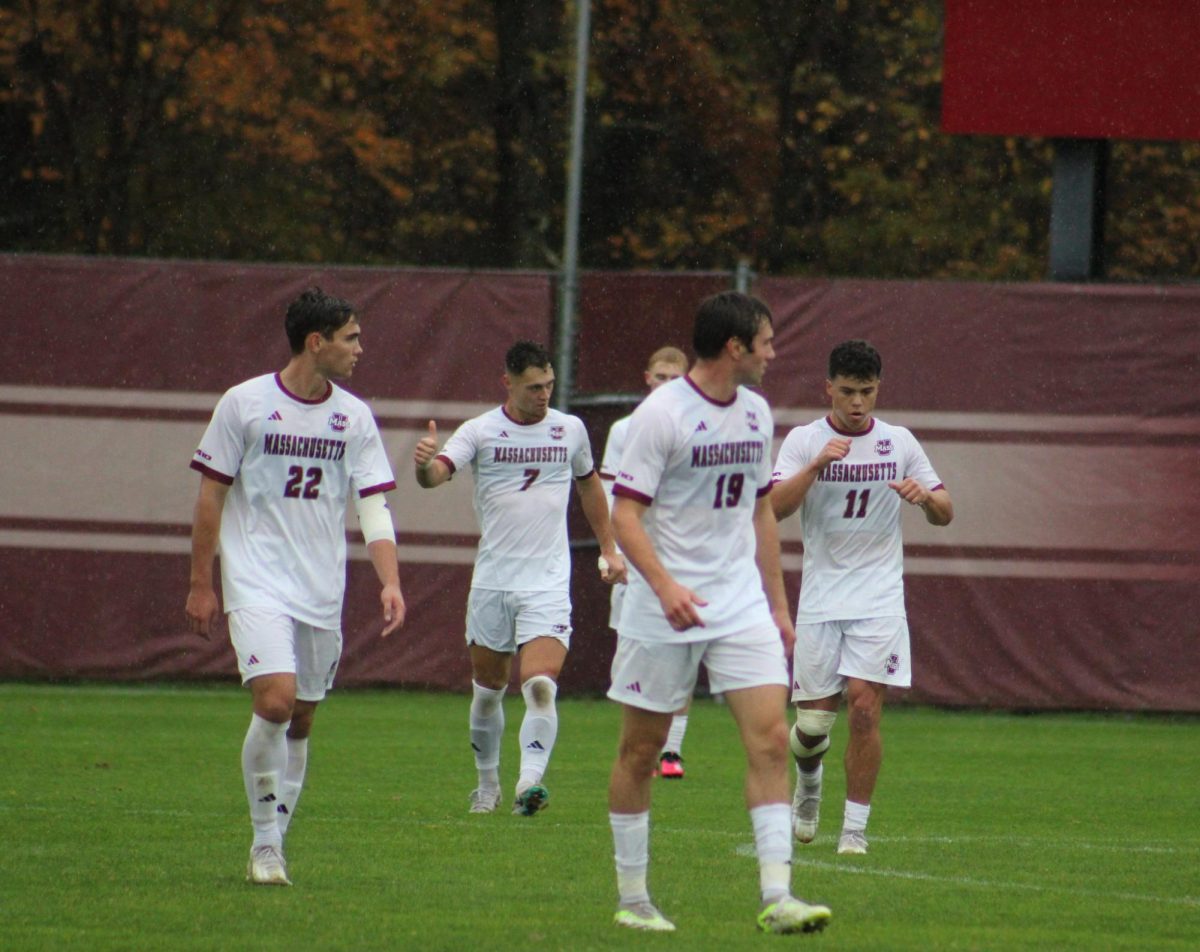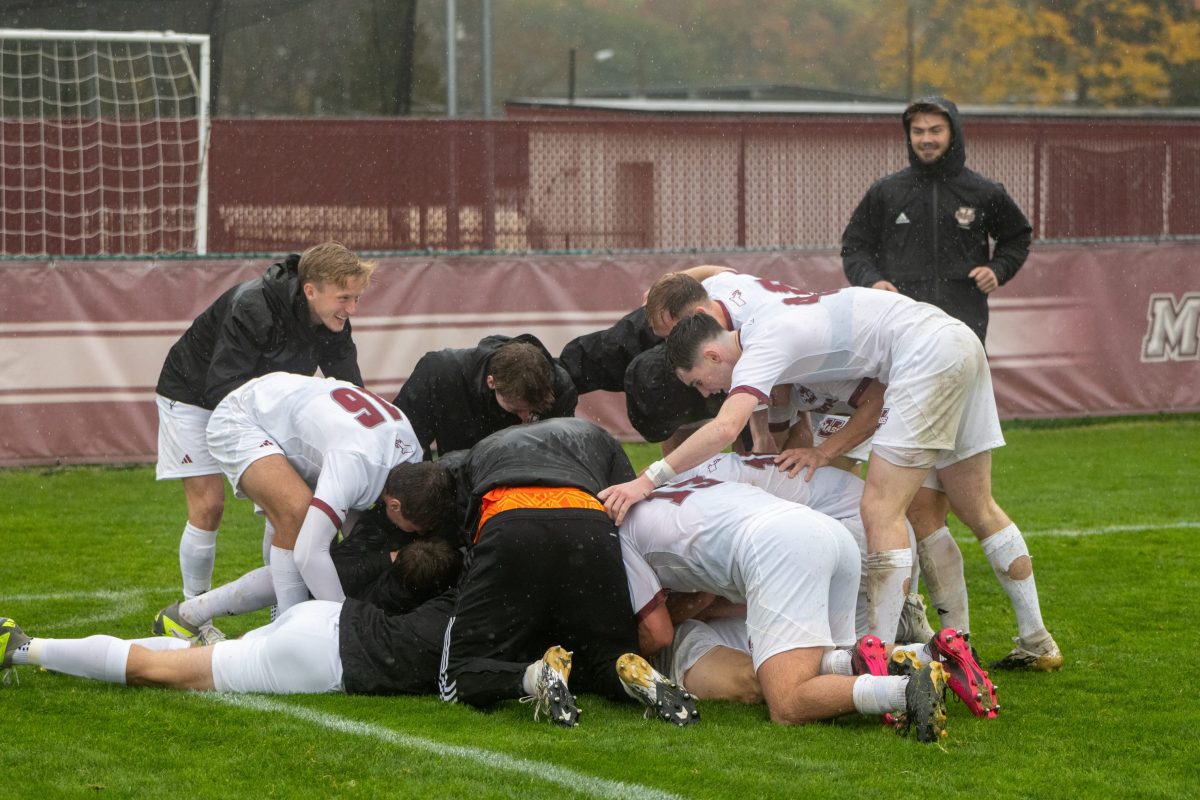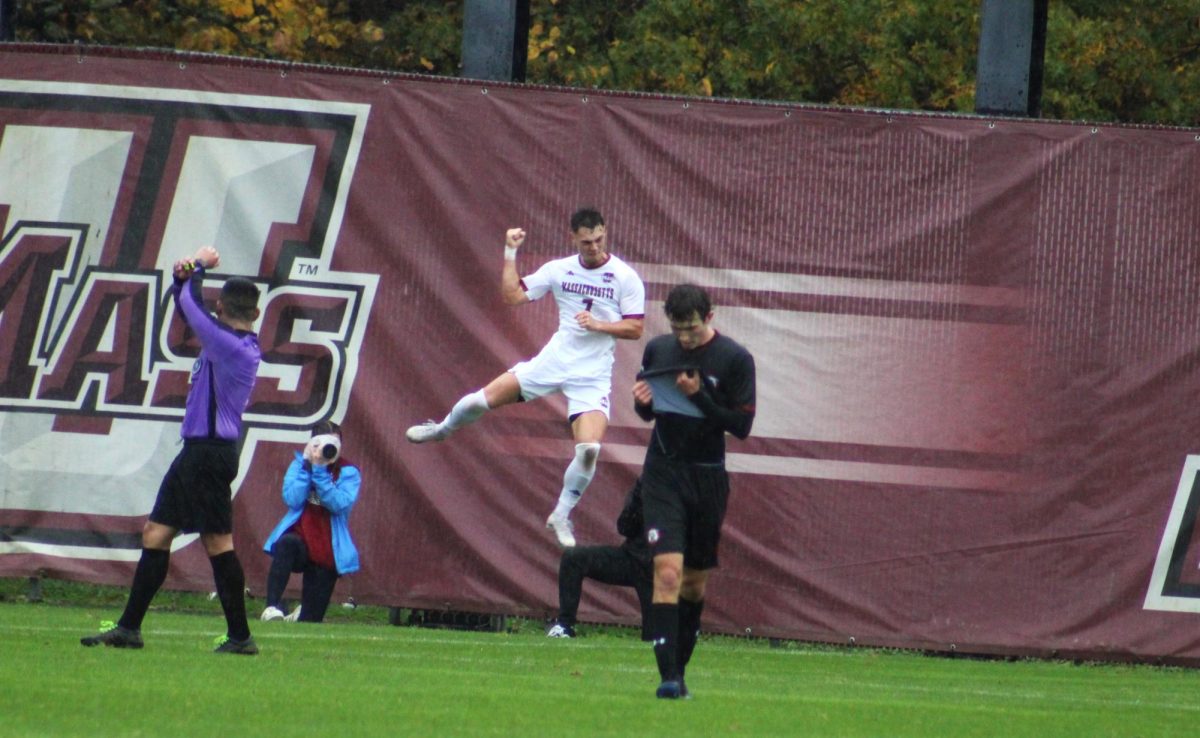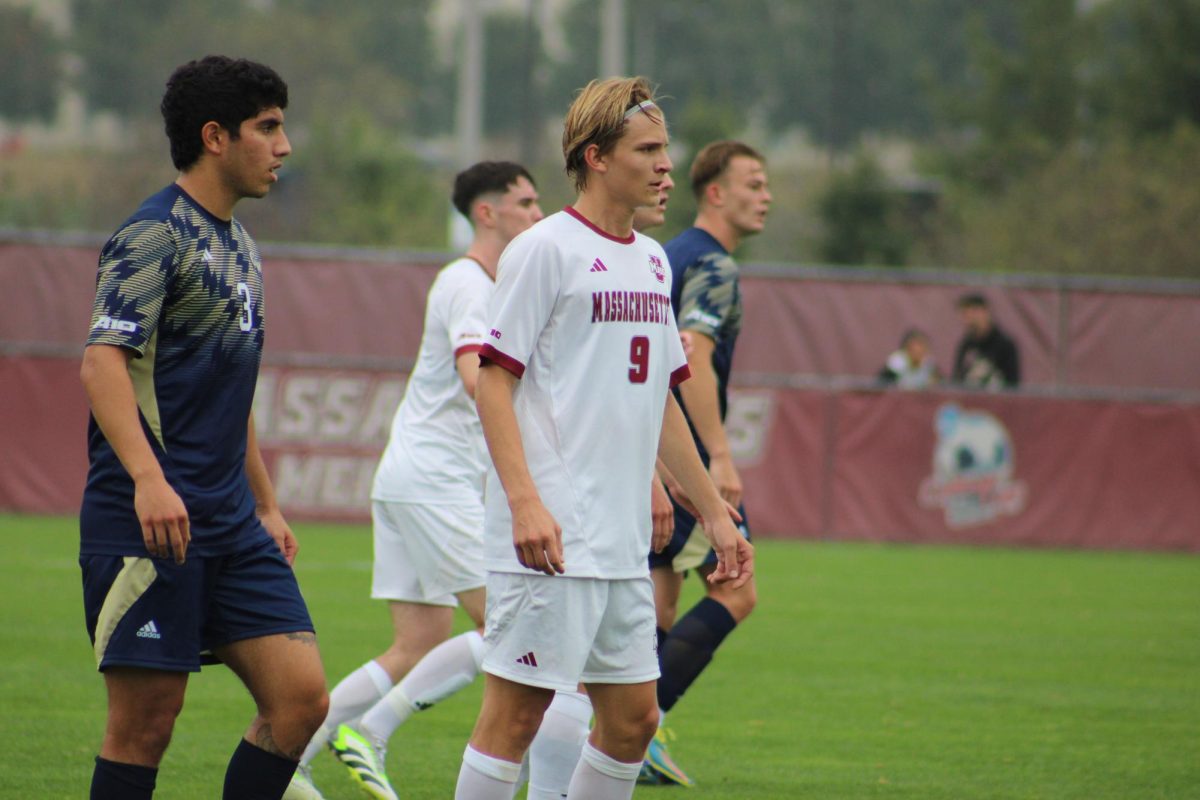Star midfielder for the Massachusetts men’s soccer team Yosuke Hanya is a 14-hour non-stop flight from his home in Tokyo, Japan. Not knowing any English meant that Hanya could not communicate with his teammates, coaches or anybody for that matter. Due to the language barrier and cultural differences, Hanya struggled with self-expression. He wasn’t able to communicate his frustration on and off the field, ask for help or know how or when to be happy.
Hanya traded towering buildings for the W.E.B. Du Bois Library, world-class cuisine for the number one dining that UMass proudly boasts and the most populous metropolitan area in the world for Western Massachusetts population of approximately 819,000 which holds a primarily white demographic.
To cope with his new reality, Hanya relied heavily on daily phone calls with his family looking for a familiar voice and some motivation.
“Sometimes I would call my parents or my family members,” Hanya said. “And they always told me it’s okay for me not to be okay as long as I can keep working hard, and that really helped me mentally.”
On top of the encouragement from his family, Hanya quickly realized he had his teammates and coaches supporting him. Head Coach Fran O’Leary is from Dublin, Ireland, so he understood Hanya’s struggle. That’s why O’Leary came up with an intuitive game to help Hanya learn English.
“Word of the day” was quickly implemented into Hanya’s daily routine. Each day meant a different word for Hanya to practice. Of course, not every word was appropriate. Still, one of the humorous words that O’Leary picked for Hanya to practice one day was “butthole.” Hanya stood in front of the whole team and started saying butthole over and over again, trying to get the pronunciation down. Not knowing what the word meant initially, he was confused when all of his teammates erupted in laughter.
Words like butthole were the bridge that led to Hanya connecting with his team. Inappropriate words and mispronunciation led to laughter which then led to conversations with teammates. Each week started feeling less strenuous, teammates immediately started coming up to him. Hanya didn’t understand a lot and nor did his teammates, but that didn’t matter anymore. What mattered was Hanya was a part of the family now.
His team was starting to understand his character, who he was as a person, they picked up on all the little things he would do like when he would get mad because he messed up on a drill in practice and that all led to acceptance. Word of the day was responsible for breaking the ice and that led to success on and off the field, Hanya was finally happy.
Thanks to the humor that words like butthole and word of the day brought to the locker room, Hanya felt increasingly comfortable around his fellow teammates and coaches. He thought that the game was an ice breaker for him and his teammates that quickly led to conversations. Of course, not much was understood or comprehended, but for Hanya, just being able to laugh with his team was the building block to developing chemistry on and off the field.
“He’s helped players on the team get better,” O’Leary said. “He supports all his teammates, and they definitely support him.”
Feeling accepted and supported by his team, Hanya set out to tackle English himself. He watched the show “Friends” and quickly grew fond of the classic sitcom. Located above his dorm room desk were tons of sticky notes with English words he wanted to learn each week.
“I mean, he stuck to his grind,” said teammate Tyler Mann. “And he’s miles ahead of when I first met him.”
Communication wasn’t the only obstacle for Hanya; adjusting to American collegiate soccer was also a massive challenge. Collegiate soccer is much more physical and high-paced compared to what Hanya had grown up playing. In Japan, soccer it’s all about ball movement; players are taught to pass, pass and pass some more. What Hanya didn’t know at the time was that his incredible passing prowess was going to be the backbone of a top-10 offense in the country.
This season the Minutemen led by their captain Hanya, and ranked 22nd nationally in the NCAA Men’s Soccer RPI and are the No. 10 offensive scoring team with 26 goals in 11 games and an impressive 2.36 average goals per game. All the success this season led to UMass’ second NCAA Tournament berth in four years. Hanya has seven assists on the season, with three coming in a crucial game against a historically formidable opponent in Rhode Island.
If you’ve watched a game this season, it becomes apparent that Hanya is a standout player almost immediately. His ability to break pressure with a combination of elite speed and dribbling put him in the upper echelon of midfielders in the country.
“This happens all the time in training and in-game,” Mann said. “He’ll pick the ball up around half field, and have two or three guys on his back, and he’ll somehow retain the ball and turn them, once he turns he’s gone, his breakaway speed, you’re not catching him to that end line and back.”
The success that fans and spectators watch today didn’t come without a lot of initial struggle and hard work. Mann believes that Hanya is the hardest working player he’s ever played with. If he makes a small mistake, Hanya tries to correct it until he gets it down. Drilling the same error over and over again.
Like a great point guard in the NBA, Hanya tries to figure out where every one of his teammates like the ball. His ball placement is his greatest attribute and he communicates that with teammates. He talks to them constantly and will sit with them and look at film and then go on to apply it in practice and eventually it all comes out seamlessly on the field.
Just one example of this cohesiveness Hanya and the offense have built came this season when the Minutemen faced off against Hofstra in the home-opener, heading into the second half up 1-0. UMass had created countless opportunities to score but just couldn’t find the back of the net for the finishing blow.
That all changed when Hanya picked up the ball around half field. With three defenders on his back, he didn’t waste any time racing down the field with teammate James McPherson close by on the left side of the field. Once Hanya got into the box and the goalkeeper came out to contest, he tapped a no-look pass to McPherson who came running in behind with a full head of steam and netted the game-sealing goal.
“He’s very good technically, but he’s also got a fantastic brain,” O’Leary said. “He sees a pass quickly, and he can break pressure quickly… he’s a top college player.”
Hanya suffered in his two-year absence due to a season-ending injury in 2019 and then the lockdown due to COVID-19. It added more hardship by not being able to be out there doing what he does best. When Hanya came back to Amherst in 2021 to finally compete with his team.
“It was tough, it was tough and it was rough,” Hanya said about his two years of not playing. “But Coach Fran always told me that I have to be the player who makes something different, who brings something different, and also I have to be the one who makes other players and other teammates better so that you know me motivated and that’s really helped me.”
O’Leary again motivated Hanya. It helped because when Hanya returned to Amherst this year, O’Leary didn’t know what to expect. Hanya had put on 10 or so pounds to his 5-foot-8 frame and had come back to Amherst better than ever.
What has become clear is that Hanya is a hard worker. He learned that sometimes it is okay not to be okay. In that process, he found his support system. His teammates and coaches were there to catch him when he fell. What makes Hanya unique is not just his skills on the field but his ability to adjust to a new country and even soccer style.
“It was really hard for me also to express myself and my soccer style,” said Hanya. “Somehow, we got through it, and obviously, I can speak English right now, and that has really been such an experience.”
Pablo Quiceno can be reached at [email protected]. Follow him on Twitter @PabloSantiago00.

